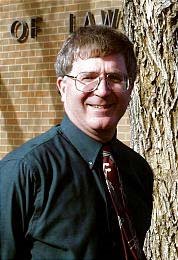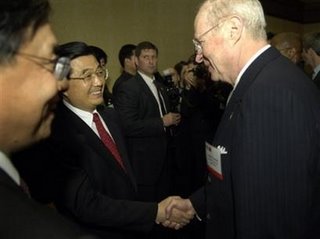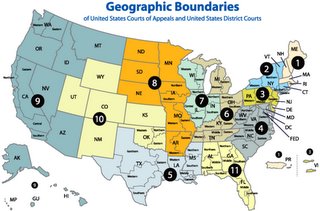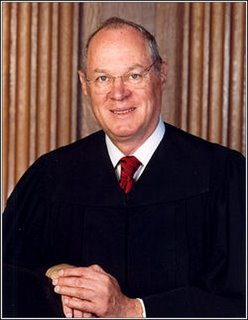It seems like everyone is talking about Justice John Paul Stevens lately. I'm not the only one who thinks that the bow-tied one will be
riding off into the Florida sunset at the end of this term. This
Scripps Howard article discusses the possibility of a Stevens retirement this summer. The introduction is my favorite part...
As Justice John Paul Stevens turns 86 this week (Thursday, April 20), he is the latest jurist-to-watch in what has become, during President Bush's second term, a vulturine pastime for ideological activists: predicting the next vacancy on the Supreme Court.
Haha, I love it. Let me make something clear. There is nothing "vulturine" about what I'm doing. I do not wish death on any Supreme Court Justice. I just want a speedy retirement of the liberal wing of the Court. They are then free to hit the lecture circuit, write books, teach a law school course, or just hang out in Boca. In fact, I wish them long and fulfilling retirements.
The article is a pretty nice examination of us vultures though. Here's my favorite reptile Ralph Neas...
"I am prayerful that he will not retire," said Ralph Neas, president of liberal advocacy group People for the American Way, which fought the nominations of Roberts and Alito. More than 100 precedents could be overturned, affecting privacy, equal opportunity, religious liberty, environmental safeguards, checks and balances regarding presidential powers. It probably would firmly ensconce the right wing in control of the court for perhaps for 25 or 30 years."
I can just imagine Neas kneeling at his bed side, wearing those footy pajamas, praying with all his heart that the four liberals and Justice Kennedy hang on until 2008. He's probably also praying that the Democrats don't royally screw up the presidential election or else his cause is lost.
Here's a conservative that I've never heard of...
Manuel Miranda, founder of the Third Branch Conference, which campaigns for conservative judicial nominees, said he greatly admires Stevens as a legal mind. "But as a conservative activist or strategist, I think, 'This is what we're fighting for, we're fighting to shift the country to a more conservative alignment.'
That's the issue. This is vote number five. If Stevens retires and Bush doesn't royally Souter-up this nomination, there will be a solid five vote conservative majority. It's also a fairly young majority. Chief Justice Roberts is 51, Justice Alito is 56, and Justice Thomas is 57. Justice Scalia is the old man of the group at 70. But if he has a majority and those dissents of his now become majority opinions, I guarantee that's enough to get him to live to see 100.
The rest of the article discusses Justice Stevens, his history, and his jurisprudence. It closes with a prediction on the possible confirmation fight...
If President Bush and the Republican-led Senate could get a more conservative nominee confirmed in Stevens' place, Harrison chuckled, "I might like the results better." But Harrison said that's a big "if," given the president's low ratings with voters now and the shakiness of some Republican seats in the Senate in this election year.
"The state of the Republicans is not very good at the moment," Harrison said. "The sad likelihood is, if there were a vacancy between now and the convocation of the 110th Congress in January (2007), the likelihood of the individual being confirmed would not be so good."
I don't agree with Harrison on this. If the right nominee is picked, he/she will get confirmed, regardless of the president's approval ratings. Look at the public's numbers on Alito. Even with the demonization campaign mounted by many on the Left, the public was still soundly behind confirmation. The only thing that could stop a nominee is something glaringly bad in their past (real ethics problems, fire-and-brimstone legal speeches, explicit calls to overturn
Roe).
In fact, the right nominee could unite the Republican party, give them something to fight for, and help them pull their collective heads out of their collective butts. I'm not a fan of the current crop of Republicans in Washington DC. They deserve every low approval rating number that they've got. They need to get their heads straight and start acting like the Contract with America wasn't just something that Gingrich scribbled onto a cocktail napkin one night. A confirmation fight, and this would be a
real confirmation fight, might be do them some good.












